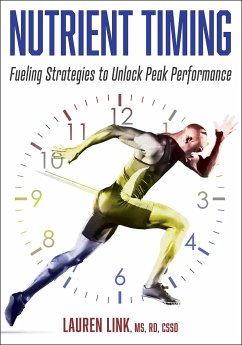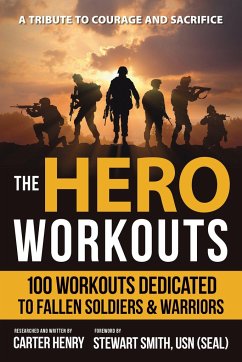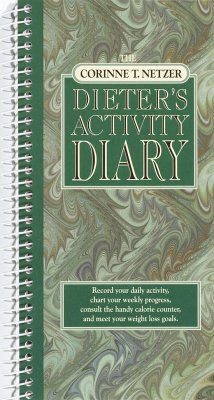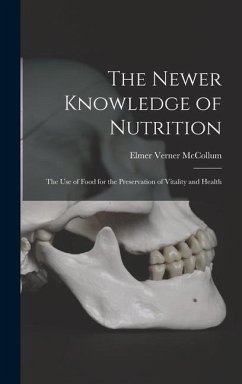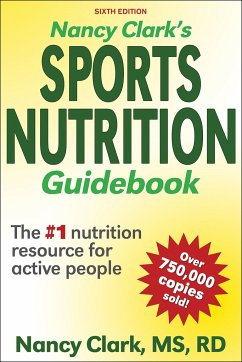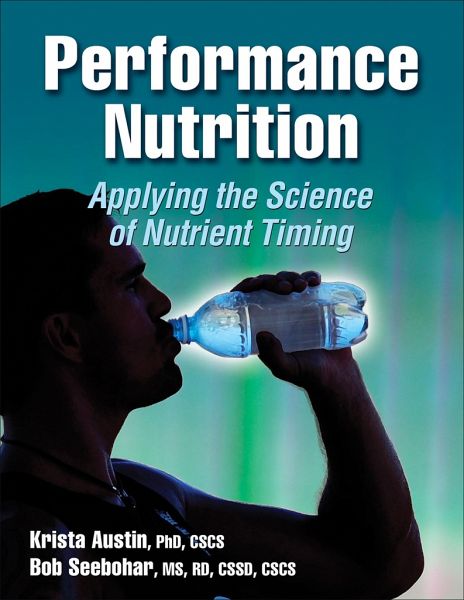
Performance Nutrition: Applying the Science of Nutrient Timing
Versandkostenfrei!
Nicht lieferbar




Based on the most current research in nutrient timing, "Performance Nutrition" blends theory with applied content and real-life examples to show nutritionists, coaches, and athletes how to optimize training, improve performance, and enhance recovery.
Blends theory with applied content and real-life examples to help nutritionists, coaches, and athletes design nutrition plans based on each athlete's individual needs and the specific demands of the sport.
Krista Austin, PhD, CSCS, is an exercise physiologist, nutritionist, and NSCA-certified strength and conditioning specialist. She is also a research associate with the International Center for East African Running Studies. Austin was a performance nutritionist with the English Institute of Sport, where she provided services to 18 Olympic sports and the England cricket team. Most recently she served as a physiologist with the United States Olympic Committee, where she worked with multiple sports in preparation for the 2008 Olympic Games. In particular, she is well known for her nutrition work with USA Taekwondo. Austin is owner of Performance & Nutrition Coaching, LLC, which provides physiological testing, nutrition, and coaching education to professional and amateur athletes as well as Olympic national teams, including USA Track & Field, USA Canoe/Kayak, USA Wrestling, and USA Triathlon. A former collegiate tennis player, she obtained a PhD in movement science from Florida State University and holds a master's degree in exercise physiology from San Diego State University. She is a member of the American College of Sports Medicine and has also served as associate editor of the International Journal of Sport Nutrition and Exercise Metabolism. Bob Seebohar, MS, RD, CSSD, CSCS, is a board-certified specialist in sport dietetics and owner of Fuel4mance, a leading nutrition consulting firm serving amateur and elite athletes. Seebohar is the former director of sport nutrition for the University of Florida and most recently served as a sport dietitian for the U.S. Olympic Committee. In 2008, Seebohar traveled to the Summer Olympic Games in Beijing as a sport dietitian for the U.S. Olympic team and as the personal sport dietitian for the Olympic triathlon team. Seebohar currently consults as a sport dietitian for US Sailing (Olympic and Paralympic sailors) and the USA Triathlon national athletes and 2012 and 2016 Olympic team athletes. Seebohar has worked with athletes in a variety of sports, including triathlon, duathlon, ultrarunning and cycling, track and field, marathon, mountain biking, road and track cycling, cross country, swimming, football, taekwondo, motocross, tennis, wrestling, weightlifting, rowing, sailing, canoeing, and kayaking. He has worked with people of all ages and abilities, including high school students, recreationally active adults, professional athletes, and Olympians. Seebohar holds a bachelor's degree in exercise and sport science and master's degrees in health and exercise science and food science and human nutrition. He is a registered dietitian, exercise physiologist, certified strength and conditioning specialist, and a high-performance triathlon coach. Beginning as a competitive soccer player in his youth, Seebohar turned to endurance sports in 1993. In 1996 he represented the United States as a member of the 1996 duathlon team at the 1996 World Championships. He has competed in numerous endurance events, including the Boston Marathon, six Ironman races, the Leadville 100-mile trail race, and the Leadville 100-mile mountain bike race. In 2009, Seebohar became a Leadman, completing all six of the Leadville endurance events in 7 weeks. He lives in Littleton, Colorado, where he enjoys training for ultraendurance running and cycling events and coaching youth in soccer and triathhlon.
Produktbeschreibung
- Verlag: Human Kinetics Publishers
- Seitenzahl: 200
- Altersempfehlung: ab 18 Jahre
- Erscheinungstermin: Februar 2011
- Englisch
- Abmessung: 278mm x 215mm x 20mm
- Gewicht: 586g
- ISBN-13: 9780736079457
- ISBN-10: 0736079459
- Artikelnr.: 32468111
Herstellerkennzeichnung
Libri GmbH
Europaallee 1
36244 Bad Hersfeld
gpsr@libri.de
Für dieses Produkt wurde noch keine Bewertung abgegeben. Wir würden uns sehr freuen, wenn du die erste Bewertung schreibst!
Eine Bewertung schreiben
Eine Bewertung schreiben
Andere Kunden interessierten sich für



